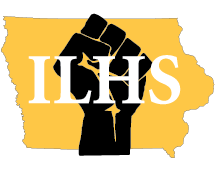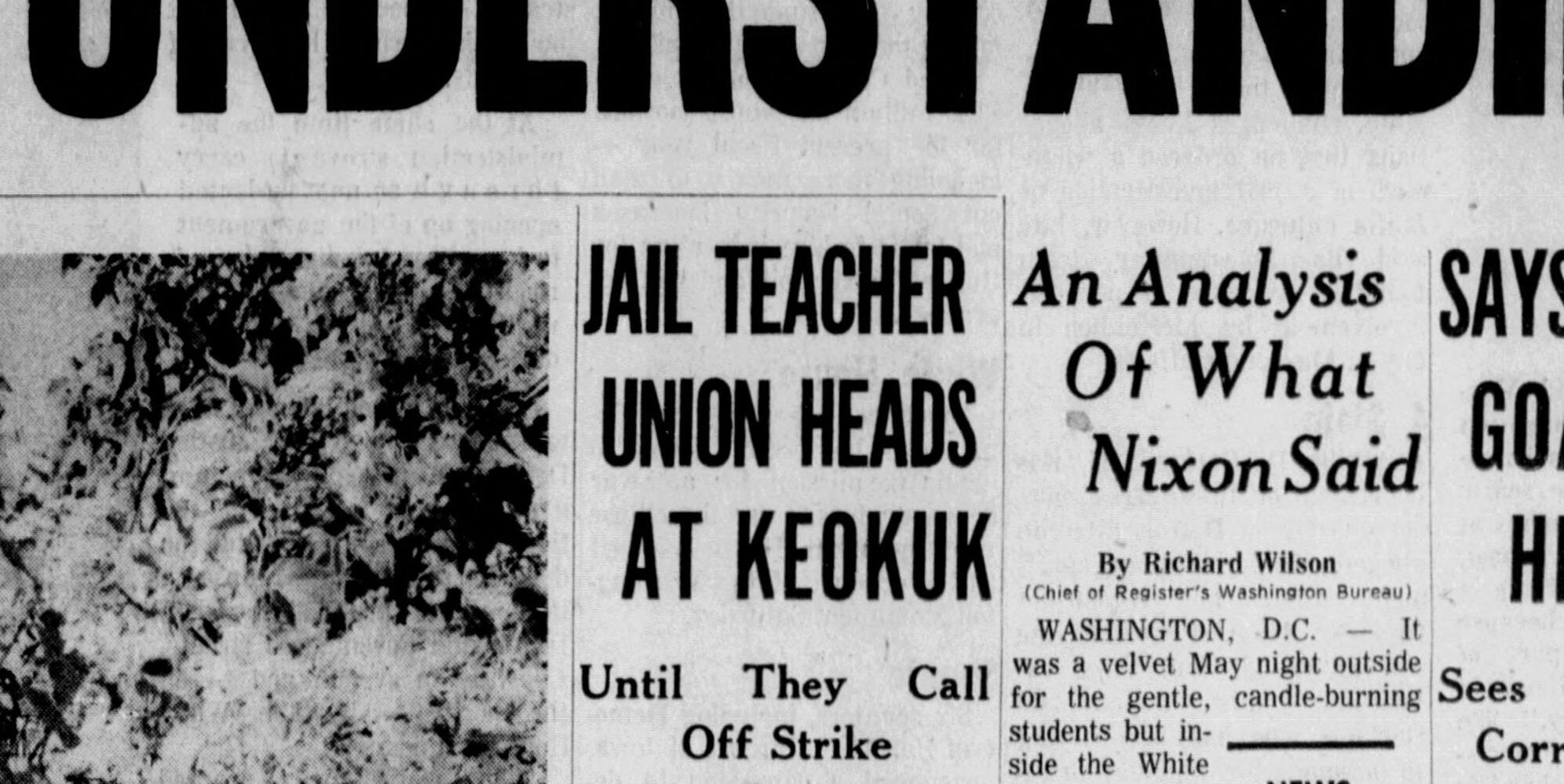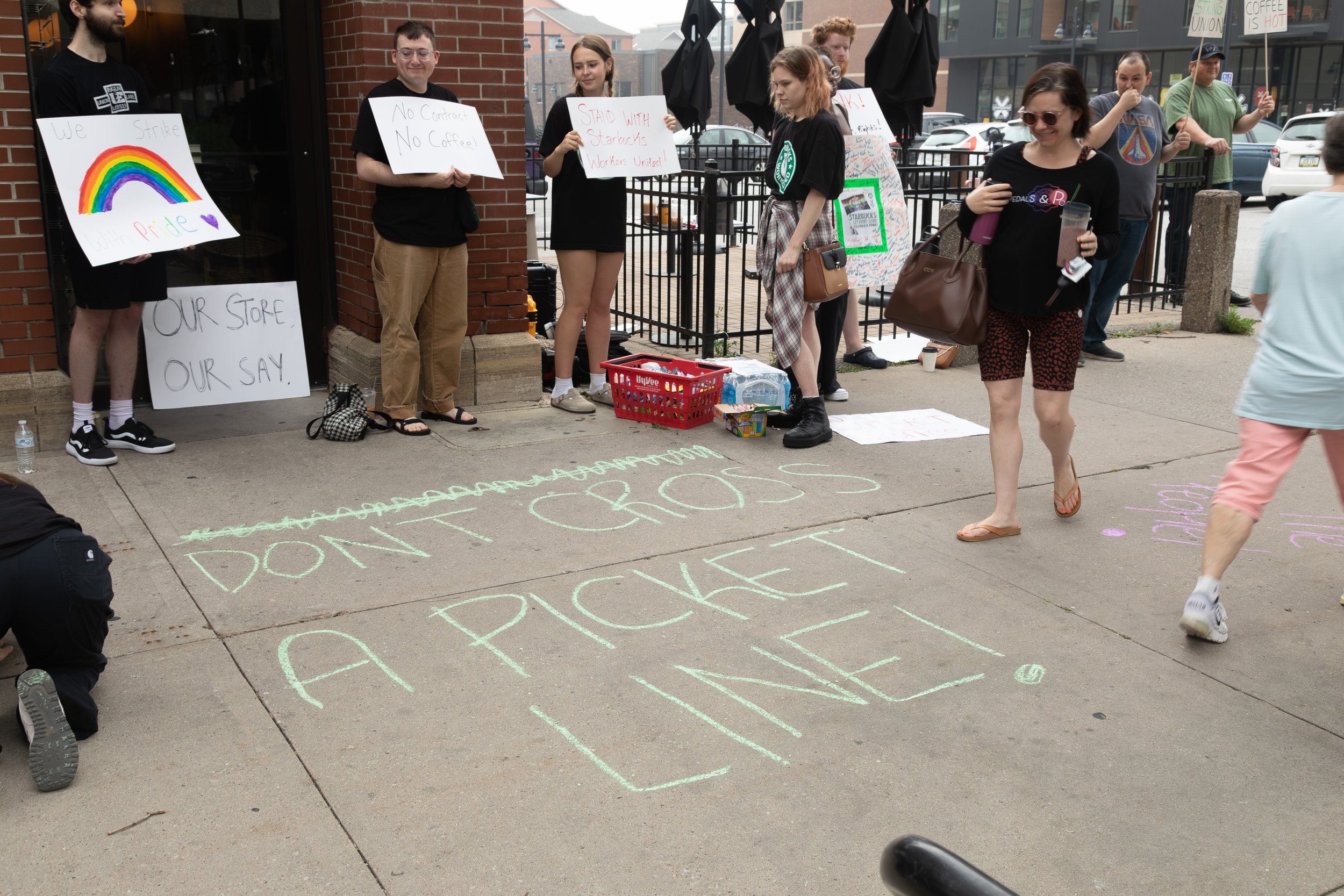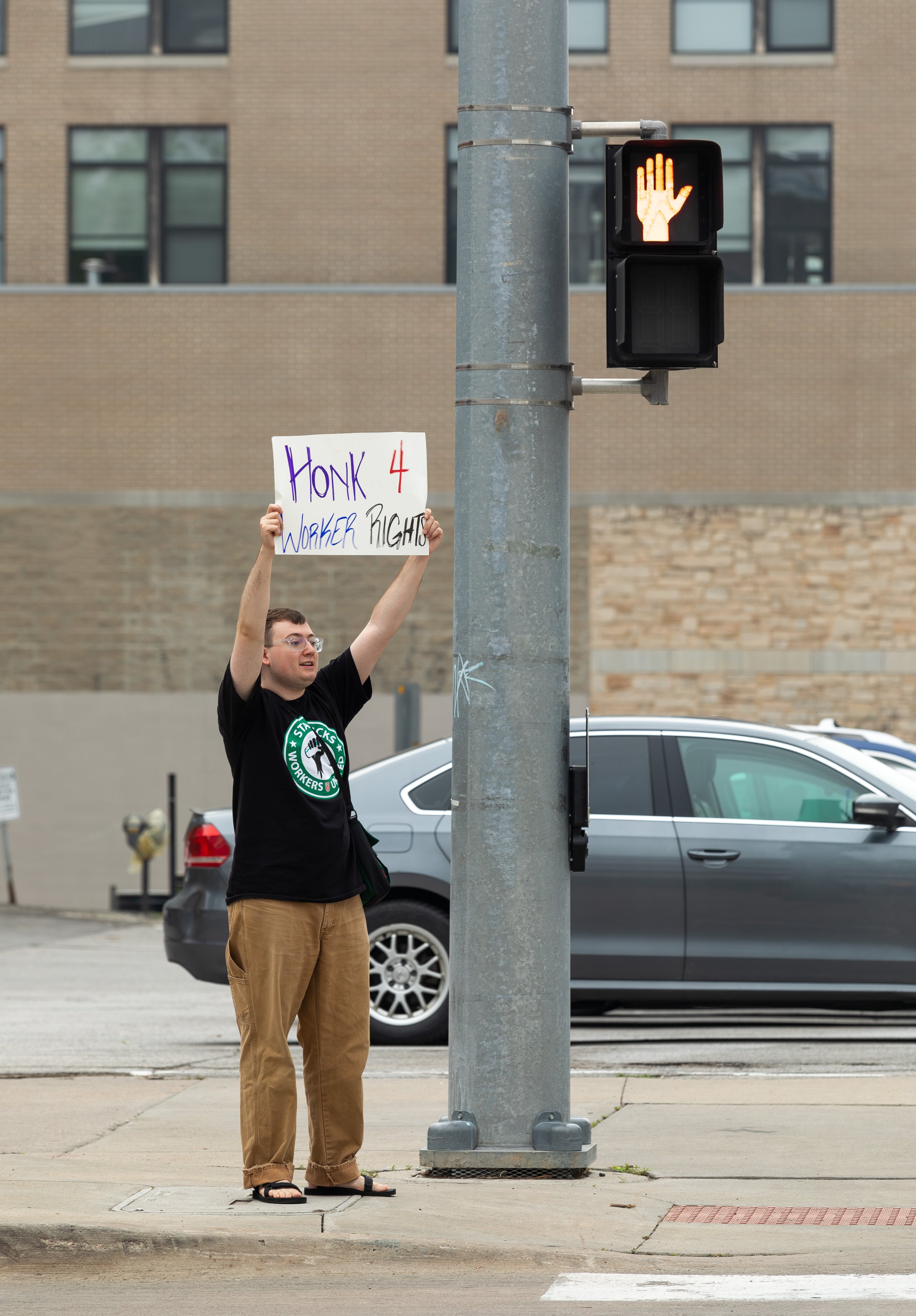A Podcast Exploring the Everyday and Extraordinary Stories of Midwestern Workers, Past and Present
Our program is produced and hosted by labor historian John McKerley. You can find Speaking of Work on Apple Podcasts/iTunes and SoundCloud.
Speaking of Work is a proud member of the Labor Radio Podcast Network.
Be sure to subscribe and write a review!
season 1
In February 2017, Iowa’s governor and state legislature passed sweeping changes to Iowa’s Public Employment Relations Act, a law that had governed collective bargaining between Iowa’s public-sector workers and their employers for over forty years. The 2017 changes made it much more difficult for most local, county, and state employees—including public school teachers, custodians and maintenance workers, correctional officers, social workers, nurses, teaching assistants, and road crews—to negotiate with their bosses for better pay, benefits, and workplace protections, while leaving in place harsh punishments for any organization that tried to strike. These changes were not unique to Iowa but part of a nationwide strategy by anti-union business and political forces that had staged similar attacks on public-sector workers in states across the US for almost a decade—the most famous taking place next door in Wisconsin in 2011.
In our inaugural season, Citizen/Worker, we go back to the origins of Iowa’s public-sector union movement after World War II to understand the roots of the Public Employment Relations Act and the recent attack against it. When and why did Iowa’s public-sector workers organize in the first place? What were their struggles and what did they hope to gain? How, why, and to what extent did they succeed? How did their rise transform Iowa’s existing labor movement, and how did the growing public sector change Iowa’s social, political, and economic landscape? And, just as important, why have public-sector workers come under such ferocious attack in recent years? Overall, where do Iowa’s public-sector workers fit within the broader and ongoing struggle to secure workers’ rights, public institutions, and meaningful democracy in a state, region, and nation increasingly dominated by the power of concentrated private wealth?
Episode 1: Keokuk Before the Strike
In our season opener, we go back to the 1950s and 1960s to explore the roots of a strike by school workers in Keokuk, Iowa. This explosive event in a little industrial town on the Mississippi River sent shockwaves through the state and jump-started a movement for collective bargaining rights for Iowa’s public-sector workers.
Keokuk Senior High School from the cover of the October 1954 issue of Architectural Forum Magazine
Show Notes:
Links to ILHOP interviews referenced in this episode:
Jane Abell oral history interview, November 13, 2013 | The University of Iowa Libraries (uiowa.edu)
Gerald Ott oral history interview, February 18, 2015 | The University of Iowa Libraries (uiowa.edu)
Sources found at the State Historical Society of Iowa, Iowa City:
[Keokuk Chamber of Commerce]. Plant Site Fact Book of Keokuk, Iowa. January 1966.
Other sources:
Cobble, Dorothy Sue The Other Women's Movement | Princeton University Press
Wilson, Morris D. “The Keokuk Teachers Strike: A Case History.” PhD Diss. University of Iowa. July 1972.
Episode 2: The Rainbow Schedule
Tensions mount as the Keokuk school board and new superintendent Robert F. Leland pursue a hard line during the contract negotiations of 1969-70, and teachers begin organizing to fight back.
The “Rainbow” Schedule, as found in Morris D. Wilson, “The Keokuk Teachers Strike: A Case History,” PhD Diss. University of Iowa, 1972.
Show Notes
ILHOP interviews:
Jane Abell oral history interview, November 13, 2013 | The University of Iowa Libraries (uiowa.edu)
Thomas Beck oral history interview, August 5, 2014 [with reference to Coulter, Iowa]
Gerald Ott oral history interview, February 18, 2015 | The University of Iowa Libraries (uiowa.edu)
Joe Campbell oral history interview, July 9, 2014 | The University of Iowa Libraries (uiowa.edu)
US census records:
Leland, Robert F. 1920, Swea City, Kossuth, Iowa, roll T625_498, page 3A, enumeration district 175. (accessed through Ancestry.com)
Iowa state records:
Gast, Elmer Chester. Iowa Delayed Birth Records, 1856-1944, State Historical Society of Iowa, Des Moines. (accessed through Ancestry.com)
Obituaries:
Alice M. Gast, White Plains, New York, Journal News (lohud.com), Nov. 5, 1999.
ROBERT LELAND Obituary - SWEA CITY, Iowa - Tributes.com
Published primary sources:
Midland Schools [bound volumes accessed at University of Iowa Main Library]
Other sources:
Blanc, Eric. Red State Revolt: The Teachers’ Strikes and Working-Class Politics. Verso (versobooks.com)
Wilson, Morris D. “The Keokuk Teachers Strike: A Case History.” PhD Diss. University of Iowa. July 1972.
Episode 3: They Jail Teachers, Don’t They?
In the spring of 1970, Keokuk teachers and other school workers launch an illegal strike to shine a bright light on injustices that they believe threaten not only them but their students and community.
Show Notes
ILHOP interviews
Other interviews
Dale Lestina oral history interview, conducted by Vakil Smallen, National Education Association Records-Special Collections, George Washington University Libraries, https://archive.org/details/NEA1007RG_s12_Lestina. [NOTE: This interview includes some discussion of the Keokuk strike at approximately 1:00:00. It places that experience within the context of Lastina’s longer career, especially his time working as NEA lobbyist in Washington, D.C.]
Published primary sources
Midland Schools [bound volumes accessed at University of Iowa Main Library]
Other sources:
Shelton, Jon. Teacher Strike! Public Education and the Making of a New American Political Order. University of Illinois Press, 2017.
Wilson, Morris D. “The Keokuk Teachers Strike: A Case History.” PhD Diss. University of Iowa. July 1972.
Episode 4: The Jail Cell Contract
Keokuk teachers stand strong and demand change before they would leave jail or stop the public pressure. Yet, even as they celebrate the contract, teachers know the struggle isn't over.
Keokuk students protesting the arrest of striking teachers.
Update and Speaking of Work Short: Iowa City Starbucks Workers Striking with Pride
Speaking of Work has been on an extended hiatus but is on the way back. Host and producer John McKerley introduces an upcoming episode on the 2021 Deere Strike and presents a Speaking of Work Short from the picket line at Starbucks in Iowa City.






















